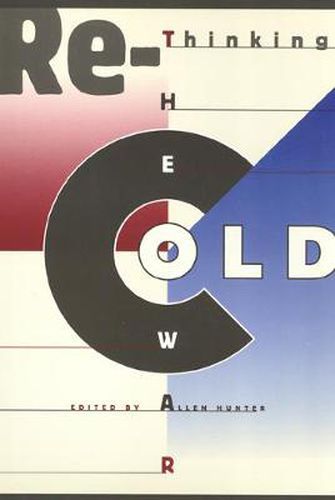Readings Newsletter
Become a Readings Member to make your shopping experience even easier.
Sign in or sign up for free!
You’re not far away from qualifying for FREE standard shipping within Australia
You’ve qualified for FREE standard shipping within Australia
The cart is loading…






The end of the Cold War should have been an occasion to reassess its origins, history, significance and consequences. Yet most commentators have restated positions already developed during the Cold War. They have taken the break-up of the Soviet Union, the shift toward capitalism and electoral politics in Eastern Europe and countries formerly in the USSR as evidence of a moral and political victory for the United States that needs no further elaboration. This collection of essays offers a more complex and nuanced analysis of Cold War history. It challenges the prevailing perspective which editor Allen Hunter terms vindicationism . Writing from different disciplinary and conceptual vantage points, the contributors to this collection invite a rethinking of what the Cold War was, how fully it defined the decades after World War II, what forces sustained it, and what forces led to its demise. By exploring a wide range of central themes of the era, Rethinking the Cold War widens the discussion of the Cold War’s place in post-war history and intellectual life.
$9.00 standard shipping within Australia
FREE standard shipping within Australia for orders over $100.00
Express & International shipping calculated at checkout
The end of the Cold War should have been an occasion to reassess its origins, history, significance and consequences. Yet most commentators have restated positions already developed during the Cold War. They have taken the break-up of the Soviet Union, the shift toward capitalism and electoral politics in Eastern Europe and countries formerly in the USSR as evidence of a moral and political victory for the United States that needs no further elaboration. This collection of essays offers a more complex and nuanced analysis of Cold War history. It challenges the prevailing perspective which editor Allen Hunter terms vindicationism . Writing from different disciplinary and conceptual vantage points, the contributors to this collection invite a rethinking of what the Cold War was, how fully it defined the decades after World War II, what forces sustained it, and what forces led to its demise. By exploring a wide range of central themes of the era, Rethinking the Cold War widens the discussion of the Cold War’s place in post-war history and intellectual life.